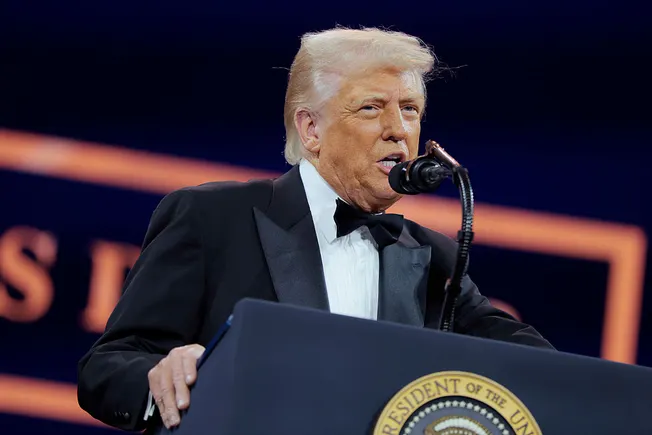Listen to the article
The Trump administration is resurrecting a controversial policy that aims to tamp down some pharmaceutical costs in the U.S. by linking them to prices paid abroad, delivering another jolt to an industry it has already targeted for tariffs.
In an executive order announced Monday, President Donald Trump directed the HHS and agencies governing international trade to pursue this approach, known as “most favored nation” for its resemblance to certain types of trade deals. The policy, which Trump unsuccessfully tried to implement in his first term, would link prices paid across the healthcare system to those in a group of other high-income countries, mostly in Europe.
In a social media post on Sunday announcing the forthcoming order, Trump said it would reduce prescription drug prices “almost immediately, by 30% to 80%.”
“Starting today, the United States will no longer subsidize the health care of foreign countries,” Trump said in an announcement Monday.
The policy will likely be challenged in court by drugmakers, who will argue the only legal way to negotiate drug prices is through congressional action governing Medicare and Medicaid, which already exists through such laws as the Inflation Reducation Act.
Reports had indicated the Trump administration tried to negotiate the policy’s inclusion in budget legislation being drafted in Congress, but later abandoned that effort. As a result, the policy is being implemented via an executive order that has more limited legal authority.
The pharmaceutical industry has staunchly opposed the policy, which they warn will hamper their ability to develop new therapies. Analysts predict it could weigh substantially on drugmaker revenue, but the exact impact is unclear and varies across companies. Industry lobbyists have reportedly told Congress the initiative could cost drugmakers as much as $1 trillion over a decade.
On earnings calls in recent weeks, pharma executives have made a more nuanced argument as they attempt to influence the administration’s actions on tax and trade policy. “We don’t want to lose the leadership we have in this important field, and that’s what we’re trying to advocate for as we work with the administration,” Merck & Co. CEO Rob Davis told investors in late April.
In a press briefing on Monday, White House officials revealed key details in the order. Within 30 days, the HHS will set price targets other countries pay for certain drugs, kicking off a round of pricing talks. If those discussions don’t yield an agreed-upon price, a new figure would be set through federal regulation, officials said.
The White House will also ask the Food and Drug Administration to expand reimportation from countries with lower drug costs, officials said, though those requests would occur at a time of heightened tensions regarding global trade.
The Department of Commerce and U.S. Trade Representative will additionally be instructed to take action against countries that keep their drug prices low, the officials added.
The move revives an effort first pursued late in Trump’s previous administration. Then, the HHS sought to establish a Medicare payment model that would have set a U.S. price for some physician-administered drugs at the lowest paid by another member of the Organization for Economic Co-operation and Development.
The program, run out of the Center for Medicare and Medicaid Innovation, would have applied to 50 patent-protected drugs that account for a substantial share of Medicare spending, like Eylea and Keytruda. As a demonstration program, the most-favored nation approach didn’t need congressional backing, unlike the broader drug negotiation strategy taken in the Inflation Reduction Act. However, it would have been time-limited, with a 2027 expiration.
Drugmakers quickly challenged the law, and a series of injunctions shut the program down. The legal judgments blocked the program because the government hadn’t followed the rules of the Administrative Procedures Act in its implementation, so the legality of a most-favored-nation approach hasn’t itself been determined.


